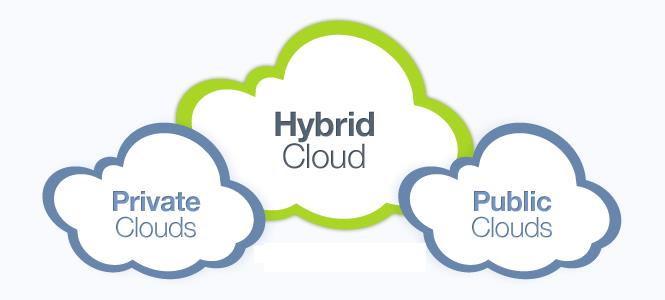What Is Hybrid Cloud: Learn Its Benefits And Different Implementation Scenarios


What is Hybrid Cloud? A Hybrid model in cloud computing is combination of on-premises, third-party public clouds, and private cloud services with an orchestration in between two platforms. It provides enterprises a higher flexibility and major data deployment options.
This was an outline of what is Hybrid cloud. Now in this entire informative content, readers are going to learn benefits of Hybrid cloud, its reliability factor, and different scenarios for cloud storage security.
What Is Hybrid Cloud Benefits
The major benefit of a web service is that it gives support to digitized concept with fast response. There are two following agendas where every technology management enterprise works:
- IT Agenda: This agenda is completely dedicated to saving financial cost.
- Digital Business Transformation: This agenda is focused on the investment for financial profit of the business.
The key concept behind what is hybrid cloud benefit is agility. The core principle of digital business is to adapt and modify the working pattern. A situation might come where organizations need to collect all the resources of private clouds, public clouds, and on-premises. All this helps in acquiring the agility, which is demanded the competitive advantage.
Pros And Cons Of Public Cloud Storage
If you have purchased any one of the cloud service providers like Azure, AWS, etc., then it means that you are shifting your work on the public cloud. Basically, you are paying cost for a part of a distributed information center infrastructure. A public cloud environment provides a cloud IaaS (Infrastructure as a service). It offers high scale of economy, elastically, and works in an automated mode. All these factors show that it is almost impossible to compete with on-premise data center on the basis of price and efficiency.
Advantages
- Scalability factor that is unlimited because of on-demand cloud resources
- Eliminate the hardware purchase and maintenance cost for data storage
- Reliable because of the distributed services across several information centers
Disadvantages
- Less cloud storage security, if proper data protection tips are not taken
Pros And Cons Of Private Cloud Storage
It is possible for an organization to create their own cloud infrastructure and hence, have a private cloud storage. Either you can manage the cloud on your own or take help of third-party services. It is completely your decision to think whether you want to take the responsibility of cloud hosting services or go with off-premises facilities.
Advantages
- Security will be high in comparison to public cloud because sensitive data is behind the firewall and usable by enterprises only
- High control and customization over the server for fitting the enterprises demand
- The flexibility of migrating non-sensitive files to public cloud to handle the disaster situation on private cloud
Disadvantages
- High maintenance costs and requirements for amortizing equipment costs
- Regular duty of maintaining the data center, enterprise software, and IT hardware
- Less amount of flexibility in scaling the IT resources as per your demands
Is Hybrid Cloud A Reliable Choice?
It is mandatory that everything is stored on the public cloud. Well, hybrid in cloud computing gives profit of public as well as private cloud services and also add the benefits of already existing data center architecture.
The Hybrid cloud enables programs and elements to exchange information across the boundaries between cloud instances or in between the architectures. The similar distribution level and flexibility for content accessing is also required for the data. It is essential to plan for the things that are moving around for evolving the needs. The architecture of Hybrid cloud comprises of following characteristics:
- Personal on-premise information center, resources of private as well as public cloud, and workloads – all these 3 things are bundled collectively in a unique data management.
- It will be possible to connect with the existing machines, which are working on traditional infrastructure running business-critical programs or comprise confidential files that might not be compatible on public cloud.
Note: Data Fabric is used to activate the Hybrid cloud infrastructure. This fabric is an approach described by software for providing a unique data services set across the IT resources combination.
Hybrid Cloud Scenarios
- Separation of Different Workloads: It is possible to store confidential customer information or financial documents on private cloud, and run rest of the enterprise programs on public cloud storage.
- Bulk Amount of Database Processing: It is an unlike situation that users process bulk data continuously at near-constant volume space. Well, it can be possible to execute some big data analytic through high scale public cloud services. Along with this, you can use private cloud for ensuring cloud storage security and hold secretive data behind the firewall.
- Move Data to Cloud At Your Own Pace: Save few documents on the public cloud and few on private cloud. After this, analyze that what is suitable for your enterprise and continue exploring the cloud presence as per the requirement – on private cloud, public cloud, or mixture of both.
- Flexibility in Work to Compete in Future: You cannot detect that what is going to be in future. It is impossible to determine the needs of upcoming generation. In this case, a Hybrid cloud method enables users to match up with the requirements of data management on private cloud, on-premises resources, or private cloud.
Conclusion
It is quite obvious that the concept of what is hybrid cloud computing is useful for several organizations. However, it is dependent upon a particular situation and the wished output. When it comes to an IT infrastructure, there is rarely a single method that fits into the scenario. Therefore, it is essential to learn and catch small-small points to make a correct decision that contributes in growth of the firm. An initial step in hybrid cloud is to explore the things and discover that what will help in organization development.